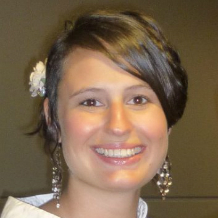 I recently completed a 3 month internship with the Inter-Agency Standing Committee on Mental Health and Psychosocial Support in Emergencies (IASC MHPSS) Reference Group. The Reference Group (RG) is a United Nations (UN) body fostering unique collaboration between more than 40 members including UN and International Agencies, NGOs, and academics. The RG promote MHPSS best practice in emergencies by supporting implementation of Guidelines developed in 2007.
I recently completed a 3 month internship with the Inter-Agency Standing Committee on Mental Health and Psychosocial Support in Emergencies (IASC MHPSS) Reference Group. The Reference Group (RG) is a United Nations (UN) body fostering unique collaboration between more than 40 members including UN and International Agencies, NGOs, and academics. The RG promote MHPSS best practice in emergencies by supporting implementation of Guidelines developed in 2007.
This internship opportunity arose following an invitation to attend the IASC MHPSS RG Annual Meeting in November 2013. At this meeting a priority identified for the coming year was to develop recommendations for ethical MHPSS research in emergencies. Through discussions with the NWDTC a 3 month internship for me to lead on this project was agreed.
Due to the nature of the RG this internship was undertaken without ever leaving my University desk. Communication with the RG was conducted via e-mail and conference/ skype calls. This way of working, whilst not totally unfamiliar, presented specific challenges – not least arranging calls with individuals spread across time zones, and getting used to the initially terrifying tumbleweed silences on conference calls! Knowing that I am committed to an international career in this field, gaining confidence in distance communication methods is important. Working independently with limited opportunities for input from the RG also required significant planning, meaning that I had to take full advantage of all opportunities for discussion and for raising any challenges I found myself facing.
During this internship I conducted a literature review, developed a framework for ethical MHPSS research in emergencies, collected case studies from the field and wrote the recommendations. This was no small feat in 3 months and necessitated time management as well as bags of commitment and energy! These activities developed key skills for the future including: how to conduct an “as-systematic-as-possible” review when including academic, grey and policy literature; synthesising and presenting literature in brief for discussion; and writing in jargon-free plain English accessible to an international readership. The final writing skills were the biggest challenge following years of academic training, but was a key learning point which I will apply to my PhD – ensuring that my research is accessible to those who will benefit most from it.
Undertaking this internship with the IASC MHPSS RG provided a unique opportunity to collaborate with researchers, practitioners and policy makers at the forefront of MHPSS research and practice in emergencies. The RG welcomed the expertise and perspective that I brought to this project, and this experience has increased my own confidence in the skills and expertise I bring to the table.
Working at the critical intersection of academia / practice / policy demonstrated the common commitment of this group to improving research and practice. I feel privileged to have been invited to collaborate with individuals with such levels of experience, commitment, passion and mutual respect. The end of this internship is far from the end of my engagement with the IASC MHPSS RG. I intend to remain involved and hope to continue to contribute to the important work that this group are leading.
